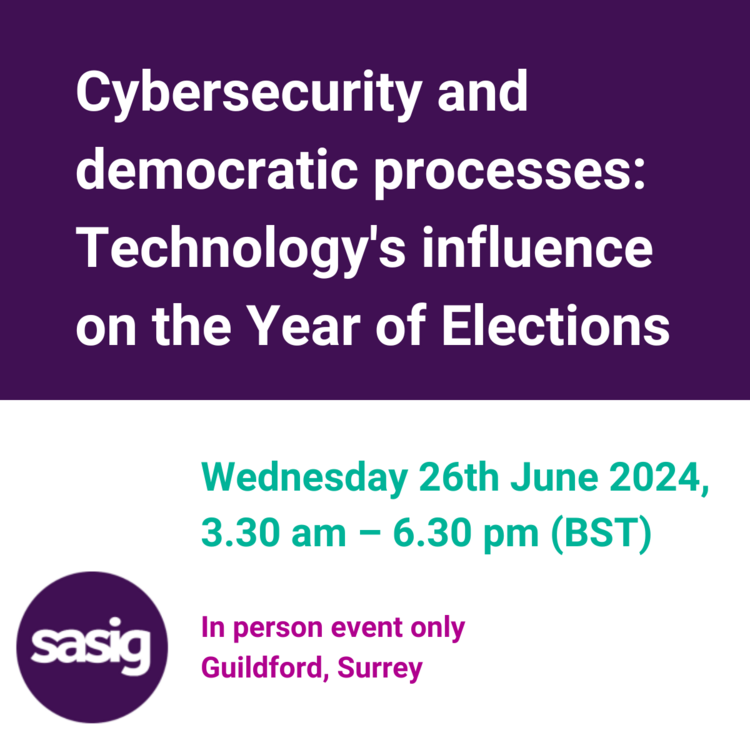Cybersecurity and democratic processes: Technology's influence on the Year of Elections

Digital technology profoundly impacts our democratic system, affecting public discourse and government elections. While politics can seem distant from daily life, governance impacts liberty and prosperity. Innovations like social media and AI influence democratic processes, presenting both opportunities and challenges. The way we access information has been transformed, shaping political debate but also amplifying misinformation and creating echo chambers. Adversaries have been quick to exploit these opportunities.
Political influence operations, enabled by the digital revolution, have broad implications. Deep fakes distort elections and aid scams, while social manipulation extends to the personal level. These threats to democracy endanger organisations and individuals alike.
The speakers will explore the intricate relationship between cybersecurity and democracy, highlighting its societal impact and the need for effective digital strategies to safeguard our way of life.
Presentations on the day include:
Welcome and introductions
Professor Steve Schneider (info), Head of Computer Science Research Centre, University of Surrey
Danny King (info), Managing Director, The SASIG
AI and the UK General Election: How worried should we be?
Professor Rachel Gibson, Professor of Politics, University of Manchester
General elections over the internet: What could possibly go wrong?
Dr Sasa Radomirovic, Senior Lecturer in Secure Systems, University of Surrey
Unveiling online political advertising: Global insights
Dr Charles Kriel (info), Senior Fellow – AI & Technology, Sympodium Institute of Strategic Communications
Social media platforms, information power and the shaping of political realities
Dr Justin Hempson-Jones (info), Managing Director, Social Machines
Q&A session
Your opportunity to share your thoughts, ask questions, and get answers from our speakers regarding their sessions